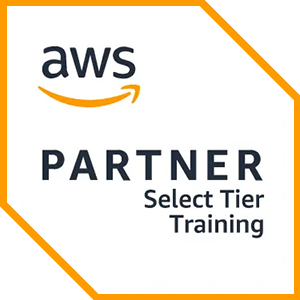Functioning effectively as a Service Desk & Support Manager requires a broad range of skills and abilities. These talents range from people-management abilities, relationship management, and logistical awareness to financial acumen and presentation skills. This course provides a thorough understanding of, and qualification in, Service Desk & Support Management. The course also investigates the management of support methodologies and technologies and the tools utilized within the Service Desk and support teams.
This four-day course also covers issues such as Service Level Agreements, the benefits and pitfalls and the importance of metrics; the implementation of service management processes, and effective problem-solving techniques that a Service Desk Manager can utilize. The course is based upon the standards and objectives for SDIs Service Desk & Support Manager qualification (SDM) and ensures that candidates are provided with the knowledge, information, and tools to successfully pass the SDM exam.
After attendance on this course, candidates will recognize and understand the importance of understanding our customers expectations and perceptions, along with understanding the benefit of using SLAs effectively as a service quality improvement tool. Critically, candidates will learn about the importance of a reward and recognition strategy and identify some different methods of reward and recognition. Specifically, this course covers the following key Service Desk and Support Management Skills:
- Course Overview and Introduction
- The Strategic Role of Support
- Essential Management Skills
- Developing and Promoting the Service Desk
- IT Service Management
- Quality Assurance
- Effective Management of Tools and Technology
- Staff Recruitment, Retention, and Development
- Leadership and Management
- Professional Development
The SDI qualification is an open qualification standard that is independent of any other training curriculum. SDI is the administrator, facilitator, and arbitrator of the standards. The exams are independently administered and proctored.
Module 1 - The strategic role of support
- Role of the service desk
- The activities of the service desk
- Successful service desk characteristics
- Vision and mission statements
- Goof practice and best practice
- Service desk and best practice
- Business standards and Industry standards
- Service ethics
- Social responsibility
Module 2 - Essential Management Skills
- Essential skills and competencies
- Routine responsibilities
- Strategic responsibilities
- The importance of documentation
- Business knowledge
- Strategic alignment
- Obtaining support to remove barriers and board approval
- Commercial management
- Financial management
- Business cases
- Organizational change management
- Elements and characteristics of project management
- Communication skills
- Effective presentations
- Negotiation
Module 3 - Developing and promoting the service desk
- Effective working relationships
- Personal networking
- Building effective work relationships
- Contributing to IT/Business objectives
- Conducting assessments
- Analysis techniques
- Sourcing models
- Outsourcing the service desk
- Promoting the service desk
- Managing stakeholders expectations
Module 4 - IT Service Management
- Objectives of ITSM
- IT Infrastructure Library (ITIL)
- Incident Management
- Request Fulfillment
- Problem Management
- IT Change Management
- Release and Deployment Management
- Service Asset and Configuration Management
- Knowledge Management
- Information Security Management
- IT Service Continuity Management
- Service Catalogue Management
- Service Level Management
Module 5 - Quality assurance
- Quality assurance program and practices
- Customer feedback
- Service desk bench-marking
- Monitoring interactions
- Monitoring benefits
- Incident and request monitoring
- Call monitoring
- Support delivery model variables
- CSFs, KPIs and metrics
- Resource management
Module 6 - Efficient management of tools and technologies
- Service desk infrastructure
- Common service desk technologies
- IT Service Management systems
- Automatic Call Distribution (ACD)
- Computer Telephony Integration (CTI)
- Support tools and methodologies
- Telephone support
- Deskside support
- Electronic support tools
- IT self-service and self-help
- Self-healing tools
- Cloud computing
- Social media
- Social collaboration
Module 7 - Staff recruitment, retention and development
- Recruitment
- The interview process
- Structured induction and training
- Skills and knowledge
- Retain staff
- Measuring satisfaction and engagement
- Staffing strategy
- Common staffing pitfalls
- Staffing models
Module 8 - Leadership and Management
- Characteristics of effective management
- Activates of effective management - Planning
- Activates of effective management - Organization resources
- Activates of effective management - Direct, control and co-ordinate
- Characteristics of effective leadership
- Motivations of effective leadership
- Benefits of motivation and motivation factors
- Maintaining a positive environment
- Improving performance
- Reward and recognition
- Providing direction and focus
- Teamwork
- Friendly and supportive workplaces
Module 9 - Professional development
- Professional development assessment
- Professional development methods
- Personal development
- Coaching
- Mentoring
- Stress management
Although there is no mandatory requirement, ideally candidates should have at least three years of professional experience working at the supervisory level within a Service Desk or support team. This course is ideal for both new Service Desk and Support managers and those who are established but wish to understand the latest approach and techniques for Service Desk best practice. The SDI Service Desk & Support Manager course would suit candidates working in the following professions or areas:
- Support Managers
- Service Desk Managers
- Client Managers
- Desktop Managers
- Customer Support Managers
- Technical Support Managers
- Service Center Managers
The above list is a suggestion only; individuals may wish to attend based on their own career aspirations, personal goals, or objectives. Delegates may take as few or as many Intermediate qualifications as they require, and to suit their needs.
There are no prerequisites to attending this Service Desk & Support Analysts course, although it is recommended that candidates should have a good understanding of service desk activity and objectives.




























 United Kingdom
United Kingdom Germany
Germany Denmark
Denmark Sweden
Sweden Italy
Italy Netherlands
Netherlands Finland
Finland














 Duration
Duration
 Delivery
Delivery  Price
Price